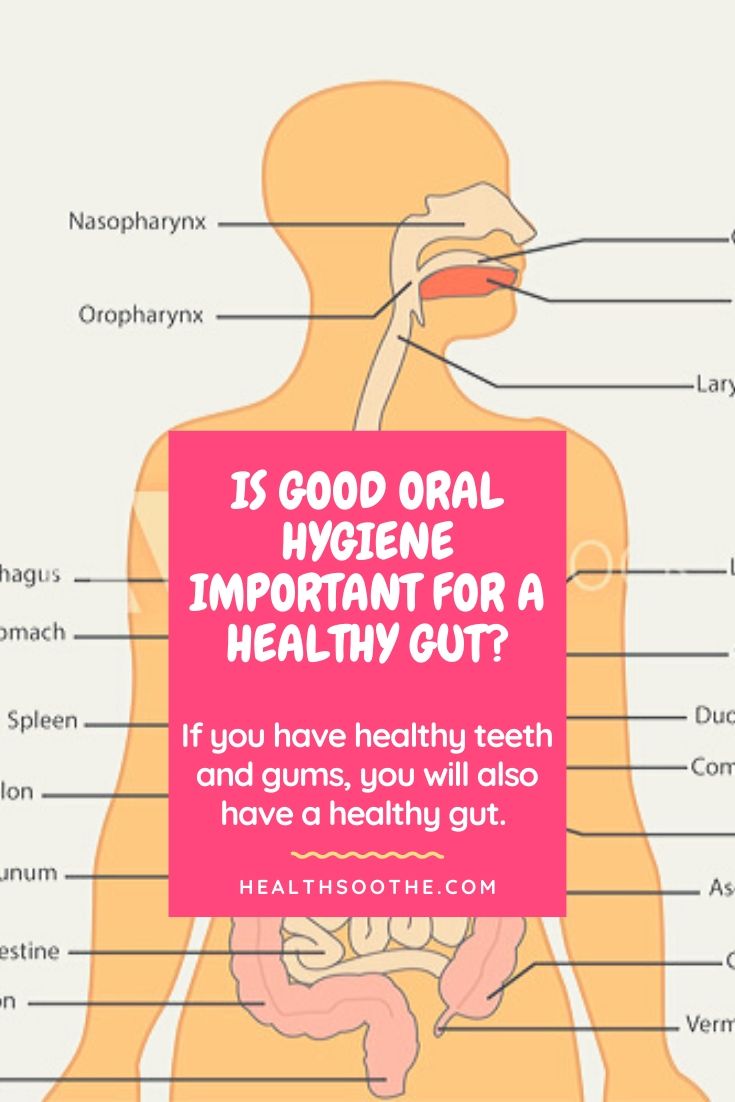Share this post
If you have healthy teeth and gums, you will also have a healthy gut. If you notice any oral problem, it could be caused in the digestive tract. Since your mouth is a part of your gut microbiome, all the good microbes, enzymes and nutrients pass through it on their way to the gut. This means that oral health will have an impact on the digestive system.
Relationship Between Dental Hygiene and Overall Health
Let us see how dental hygiene affects overall health. Your teeth help in breaking down the food you eat to a manageable level for the gut. Healthy digestion relies on trillions of microbes that live in our gut microbiome.
This microbiome is responsible for further breaking down the food to absorb nutrients. The microbiome also uses the food to maintain the digestive cells, which work with the intestinal bacteria.
If the food is not broken down properly in the mouth, there will be an imbalance in the gut bacteria. If the gut bacteria are imbalanced, your digestive system and immune system can suffer.
Digestive Conditions and Oral Health
The first signs of digestive problems occur in the mouth. Diseases like Crohn’s disease, irritable bowel syndrome and ulcerative colitis may all exhibit oral signs.
Oral signs that tell about your gut health include:
- A swollen, red tongue: It is a sign of immune imbalance in the digestive system. Moreover, a deficiency in folic acid and other B vitamins can cause a swollen tongue.
- Flat red lesions on the inside of cheeks and gums: These are a sign of vitamin B12 deficiency.
- Yeast infection: It is a sign of immune imbalance. If it occurs in the mouth, it indicates a zinc deficiency due to poor digestive function.
- Mouth ulcers and inflamed gums: These occur due to an immune imbalance in the gut.
- White, pus-filled lesions in the mouth
- A sensation of burning in the mouth: This can occur due to dry mouth or oral inflammation. This symptom can also suggest mineral and low vitamin levels.
Healthy Diet for a Healthy Gut
A healthy diet can drastically improve your gut health. By choosing oral-microbiome-friendly food, you can prevent gut and oral issues.

Here are some changes that you can make in your diet:
- Avoid foods that are processed or contain artificial additives and preservatives.
- Include a variety of fibre-filled vegetables such as leafy greens, carrots, beets, Brussels sprouts, and broccoli.
- Eliminate sugar in different forms like table sugar, corn or maple syrup, refined sugar, etc.
- Eat whole foods in their original state.
- Consume vegetables that have prebiotic fibre. These feed good bacteria in the mouth and gut. Such veggies include chicory root, onions, garlic, chickpeas, and lentils.
- Eat seasonal food.
- Replenish your microbiome with fermented and probiotic food like yoghurt and kombucha.
Lastly, make sure you chew your food properly. The mouth is where the digestive process starts and not chewing the food properly will put extra pressure on the gut. Moreover, you will also starve the beneficial bacteria of their role in starting the processing of food.
Bad oral health can mean bad gut health and vice versa. If you suspect that oral health is affecting your gut, consult a doctor.
Author Bio: Dr Anu Isaac, DMD, runs a successful dental practice in Salem, MA. As the founder of Coral Dental Care, she is dedicated to creating healthy, beautiful smiles for her patients and also to educating the dental and non-dental community with her engaging articles on all things related to oral health, recent dental innovations, and latest treatment modalities.

Isreal olabanji a dental assistant and public health professionals and has years of experience in assisting the dentist with all sorts of dental issues.
We regularly post timely and trustworthy medical information and news on Fitness, Dental care, Recipes, Child health, obstetrics, and more.

